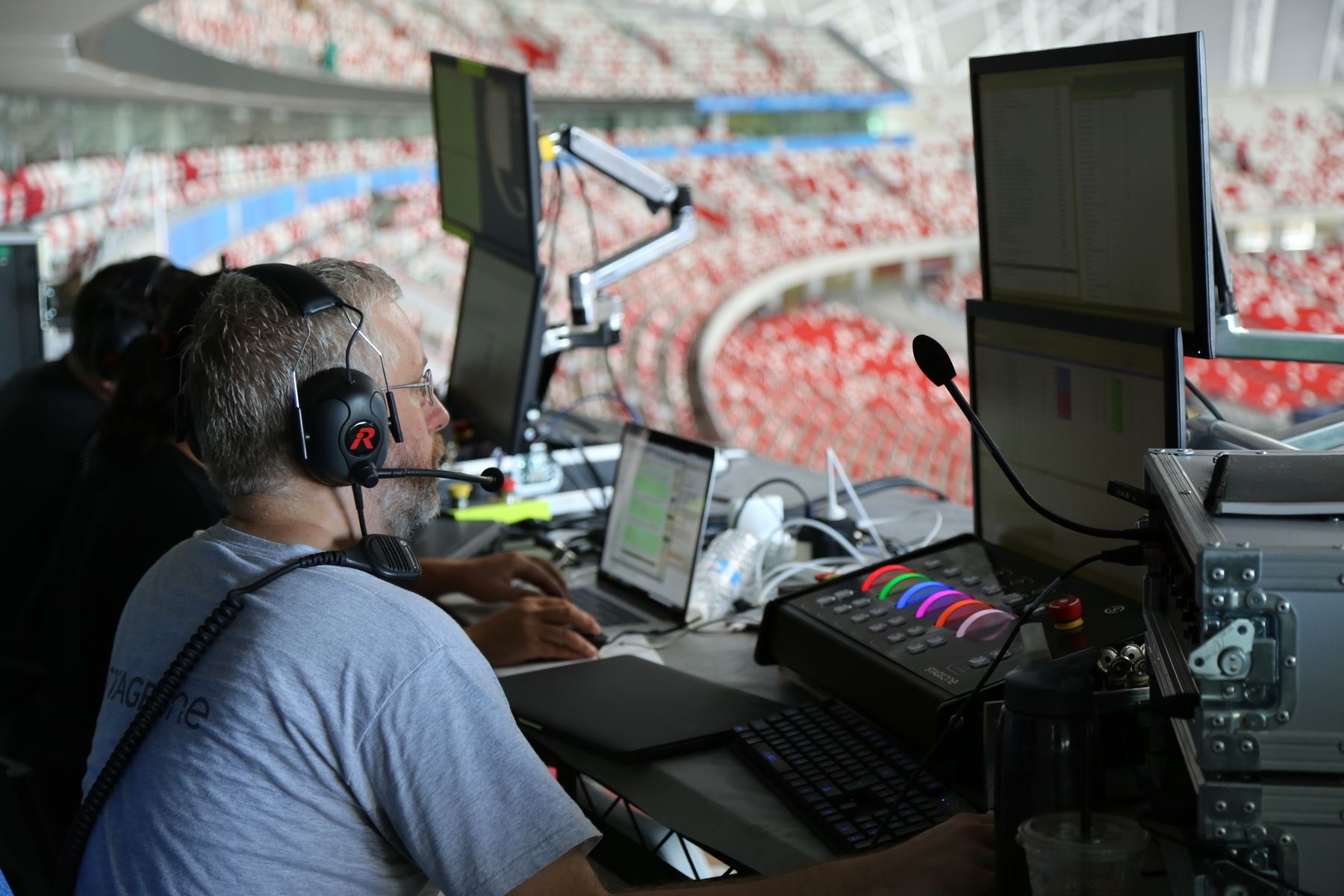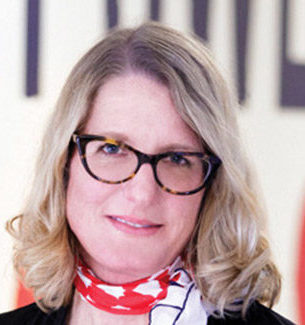Giving the Olympics the gift of flight
As athletes strive for new heights in Pyeongchang, Neil Dreher is already an expert on the air up there.

In the 2014 Sochi Olympic Winter Games opening ceremony, a girl flies off into the sky after her kite while scenes of the Russian wilderness float hauntingly by, fluffy clouds and all. Similarly, in the Paralympic Games kickoff, a gigantic icebreaker glides in, suspended above the stage as if in a dream.
It takes a lot of work to create the specter of effortlessness in productions like these. And at the upcoming 2018 Olympic and Paralympic Games you’ll find Neil Dreher, lead aerial automation programmer and operator, part of the team that makes them happen.
“There’s this magic going on behind the scenes that people watching don’t get to see,” said the 2005 graduate in applied technical theatre “The Sochi performances looked simple, but they were really hard to do.”

Today, Dreher is an internationally in-demand professional, working in far-flung corners of the map. In addition to the Olympics, he’s served as automation lead and programmer of the 2017 Asian Indoor & Martial Arts Games in Ashgabat, Turkmenistan; led the process for high-end auto shows in Frankfurt, Paris and Geneva; and headed up efforts for the 2015 Southeast Asian Games in Singapore.
“He typifies the best example of theatre grads who go on to hugely successful professional careers,” said David Kottenstette, who was Dreher’s advisor and faculty member for several theatre classes. “His story complements what we do here at MSU Denver, incorporating the relevance of both degree and work.”

That high-flying vocation began with childhood dreams to become astronaut. For Dreher, though, it wasn’t just starry-eyed sci-fi; the real intrigue that set the stage for his future was the physical act of getting a shuttle into space.
“The tangible physics fascinated me,” he said. “I was one of those kids who took things apart – and when you do that, you have to figure out how to put them back together.”
“It never occurred to me that all of these geeky interests could be the means to make an interesting way through life.”

In simple terms, entertainment automation is using mechanics to move things with motors and computers.
Years ago, this could’ve been as simple as moving a fly bar. And indeed, Kottenstette said that when the average person thinks about technical theatre, the image that still comes to mind is someone behind the scenes who like electronics and is focused mainly on the mechanics of production – a button-pusher.
This belies the complexity contemporary automation can take. It’s Dreher’s interdisciplinary expertise that couches process within a sensibility informed by creative intent.

For the games in Turkmenistan, that meant setting a 47-ton structure housing a massive 300-by-60-foot projection screen and a platform launching 16 performers who placed their trust in Dreher’s expert precision. And in Sochi, it was about engineering a solution to an architectural challenge: Because of the asymmetrical arch of the Fisht Olympic Stadium’s roof, it took incredibly detailed coordination to trace lines of movement to not overload the system’s capacity and make those clouds actually float like clouds.
It’s a complicated orchestration that requires a deft touch – but when it comes together, it’s a symphonic experience for those in the crowd.
Dreher, on the other hand, often doesn’t see the fruits of his labor until later.
“Being behind the scenes, you don’t always get the full experience of what the audience sees,” he said. “When you look back at the videos, though, you get to see it come together and notice things you didn’t the first time. That’s really cool.”

It’s a long road from failing an introductory acting class.
Dreher, who was actively working in the Denver theatre community at the time, needed the course for his degree plan. After missing several sessions, it became clear that he wouldn’t meet the requirements to pass and would need to retake it in a future term.
He described it as a line in the sand he hadn’t experienced before – and credited faculty like Kottenstette (who taught the class at the time) and current chair of the theatre department Marilyn “Cookie” Hetzel for providing both the support and accountability to forge an inquisitive, immutable resiliency.
“His innate curiosity has served him well and I’m in awe of the work he’s doing now,” said Kottenstette.
“The thing is that he knows how to turn lights on at the right time for Shakespeare – but more than that, he understands the art of Shakespeare first and foremost.”
Dreher also attributed a shift in focus to the diverse study body, made up of a wide range of lived experiences.
“You see the drive of everyone from many different backgrounds and it makes you think about why you’re there,” he said.
“Part of the benefit of having a degree is going through the process; it’s committing yourself to a goal – and then figuring out how to achieve it. That’s important.”
It would’ve been easy to give up after that F. But for Dreher, it was an opportunity to reshape perspective. And it’s built a rock-solid foundation that’s given him the creative tools to tackle even the toughest of logistical challenges.
Not giving up is a trait that hits close to home for the globe trekker. In Sochi, he garnered national attention for rescuing his now-faithful companion, Fisht, a stray dog at a Russian construction site named after the ceremonial staidum. In a difficult environment, Dreher noticed how she was a beacon of calm and affection.
Fast-forward four years (and a successful crowdfunding campaign to get her to her new home the States), and this luckiest of dogs is now living the good life, even appearing in the “Dogs of Denver” coffee table book, benefitting the Denver Dumb Friends League.
Fisht’s story is testament to another of Dreher’s gold-medal observations: In the most unlikely of places you can find the greatest good.
“You have to be open to new opportunities,” he said. “Sometimes it’s unexpected and dramatic – most people won’t just say ‘Okay, I’ll move to China.’
“And it might not pan out, but you’ll miss a lot if you’re not open to taking the chance in the first place.”







